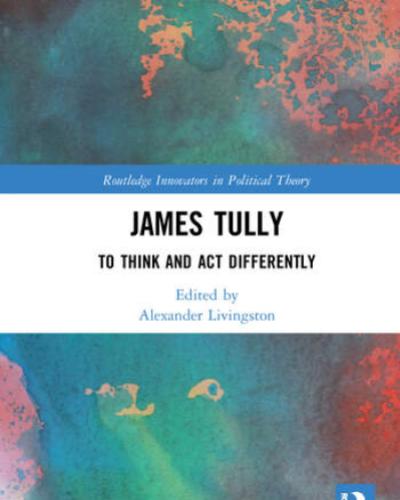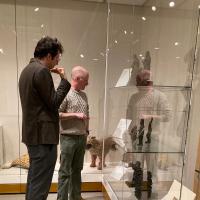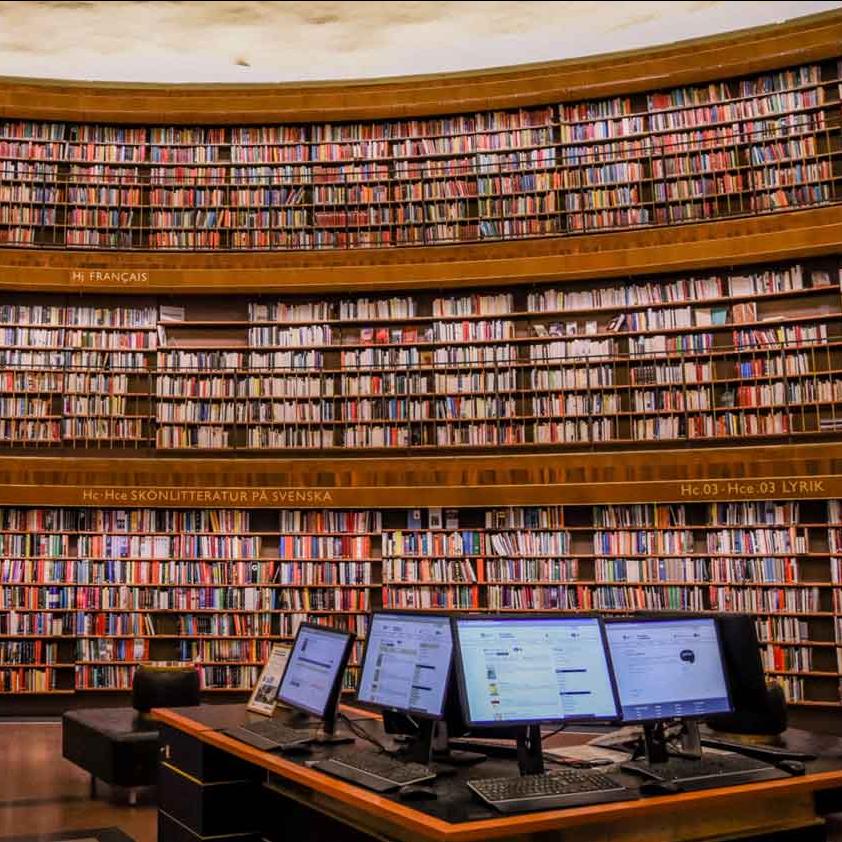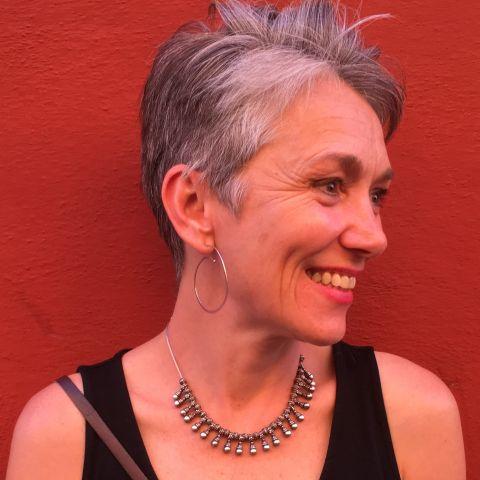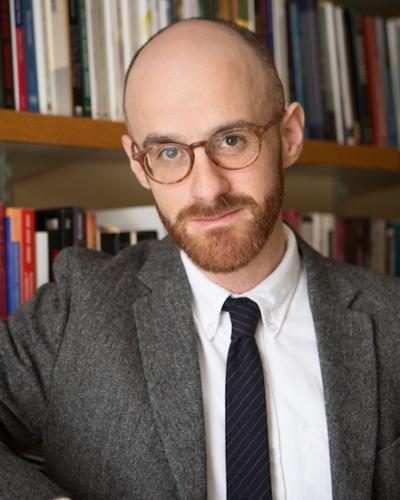Our Q&A series highlights former Fellows' monographs and other projects that grew out of the research done during their Fellowship year at the Society for the Humanities. In the following Q&A, Alexander Livingston, 2018-19 "Authority "Faculty Fellow and Associate Professor in the Department of Government, discusses his new edited collection of essays on the political theorist James Tully. The collection, James Tully: To Think and Act Differently, was just released in May 2022 by Routledge.
Big Picture
James Tully: To Think and Act Differently is a collection of essays by the Canadian political theorist James Tully. Over the last four decades Tully has profoundly transformed the study of political thought by reconstructing the practice of political theory as a democratizing and diversifying dialogue between scholars and citizens. Across his writings on topics ranging from the historical origins of property, constitutionalism in diverse societies, imperialism and globalization, and global citizenship in an era of climate crisis, he has developed a participatory mode of political theorizing and political change he calls “public philosophy.” This practice-oriented approach to political thought and its active role in the struggles of citizens has posed fundamental challenges to modern political thought and launched new lines of inquiry in the study of constitutionalism, democracy and citizenship, settler colonialism, comparative political theory, nonviolence, and ecological sustainability.
The book appears as the fourteenth volume of the Routledge Innovators in Political Theory series. James Tully: To Think and Act Differently collects classic, contemporary, and previously unpublished writings from across Tully’s career to shed new light on these dialogues of reciprocal elucidation. I argue in the book that Tully’s place as an innovator in the field lies in no single contribution but rather in the diverse ways his work has pursued deparochialising dialogues across multiple traditions in pursuit of perspectives adequate to local and global problems of our times. His interlocutors range from Hannah Arendt to Edward Said to Peter Kropotkin but a career-long dialogue with three traditions in particular has shaped his distinctive approach: Ludwig Wittgenstein’s philosophy of language and its application to the study of the history of political thought by Quentin Skinner and John Dunn, Michel Foucault’s genealogies of the modern subject and analytics of power, and the ways of knowing and being of Indigenous peoples from across Great Turtle Island. Situated both within and beyond the boundaries of the academy, the power of public philosophy to disclose and transform understandings lies in its continuity with the everyday talk of ordinary citizens.
Subjects of previous volumes in the Innovators series include Chantal Mouffe, Iris Marion Young, and Michael Rogin amongst others. Each is meant to include a selection of writings from across their career highlighting the author’s major contributions. This volume contains published work reaching back as far back as 1989 but unlike other books in the series its focus is more forward looking than retrospective.
In Particular
Editing this kind of volume proved a challenge because a major two-volume collection of Tully’s writings on freedom, democracy and imperialism, Public Philosophy in a New Key, appeared in 2008. To craft something new, I decided to approach the volume from the perspective of his current research on sustainability and democratic transformation. In the last decade, Tully has deepened his account of citizen struggles to renegotiate, resist, and rework the ways they are governed in dialogue with both the climate sciences and the Traditional Ecological Knowledge of Indigenous peoples. The book is organized thematically into three parts. The first surveys methodological writings on the practice of public philosophy. The second collects Tully’s writings on democratic citizenship, constitutionalism, human rights, and imperialism. The third part, which is where the volume really tries to make its mark, focuses on Tully’s writings on development, ecological sustainability, and regenerative democratic transformation. This is by far the volume’s longest section and includes the most previously unpublished and hard-to-find writings to really showcase the trajectory of public philosophy in the decade since Public Philosophy in a New Key.
As an editor, I couldn’t have been more fortunate than to work with Jim Tully. This book represents a genuinely collaborative effort. He made himself available for countless email exchanges and Zoom calls, and generously shared unpublished manuscripts and lectures that helped me see the persistence of ecological sustainability and eco-social change from his earliest work on property regimes of early modern Europe through his writings on modern and diverse constitutionalisms, human rights regimes, and grassroots practices of participatory democracy around the globe. I lay this all out in a lengthy introductory essay on Tully’s political education and intellectual development. It is also the topic of the concluding interview on the arc of his work and the content of the volume.
Discovery
I learned to think about ecology – and really nature itself – in a whole new way working on this project. Against the climate change literature’s tendency to think of nature either an external object to control or something like fate, Tully’s stress on the symbiotic and symbiogenic conditions of life taught me how to think about climate change in terms of dynamic and interactive systems –political, economic, legal, and biological. These systems can become vicious and cascade towards self-destruction, as modern regimes of capitalist development have become, but precisely because they are open and dynamic, they can become virtuous and regenerative under appropriate conditions. Chapters on the role of law in the climate crisis, the relationship between reconciliation with the living earth and decolonizing relationships between settler and Indigenous peoples, and the continuing insights of the tradition of nonviolence for building sustainable futures, Tully explores possibilities for such virtuous dynamics of “regenerative transformation” – as we find in the resilience of forest growth after clear cuts and in Haida Raven cycle stories. As an alternative to both techno-optimism and climate fatalism, this eco-social approach invites us to see ourselves as actors within these systems who have a hand in tipping their trajectory in a different direction. This way of rethinking ecology has consequences for thinking about legal and political change too, and the importance of sustaining a rich permaculture of democratic citizenship that might play a role in transforming our unsustainable and planet-destroying institutions.
Similarly, thinking about democracy, law, and citizenship in a Canadian context really provincialized a lot of the conventions and concerns I’ve learned to take for granted working in the American academy. I am a settler from unceded Coast Salish territory, educated in philosophy and political science at Canadian institutions, so much of this felt like relearning things that were once familiar as well as learning things entirely new. The terms orienting anxieties about the state of US democracy break down in the context of Canadian federalism, or least the terms become much more fluid. For instance, debates whether the constitutional order has become a primary impediment to democratization or a fragile bulwark against the dangers of populism don’t fit neatly for thinking about democracy in a multinational context where struggles over the terms of constitutional association amongst settlers and Indigenous peoples take the form of struggles for reconciliation, resurgence, and refusal.
This kind of “engaged” research, as we would say at Cornell, invites a provocative set of ethical and methodological questions about not just about what humanistic research has to offer the crises of democracy but how our approach to own research promotes or forecloses civic struggles for freedom.
Relatedly, I learned a great deal about what it means to think through a genuinely dialogical approach to humanistic research means by coming to see public philosophy in the context of new work in community-directed research methods and the pedagogical innovations of Indigenous legal scholars. This kind of “engaged” research, as we would say at Cornell, invites a provocative set of ethical and methodological questions about not just about what humanistic research has to offer the crises of democracy but how our approach to own research promotes or forecloses civic struggles for freedom.
Fellowship
My fellowship at the Society was an invaluable experience at Cornell that left its mark on this and other projects. Listening to and learning from colleagues across the humanities helped me get out of my disciplinary box. I don’t think I would have been able to see the bigger bio-social picture animating Tully’s innovations in the field if I hadn’t had a chance to spend time with anthropologists, visual studies scholars, and literature folks doing cutting edge work on climate issues in their distinctive idioms and with their own discursive archives.

